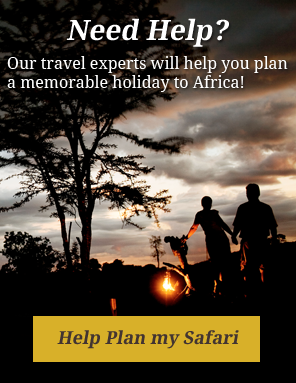What you need to know before, during and after your safari.
What is a safari?
Safari means journey and is a holiday to a wildlife area which can be combined with a beach holiday.
How much does a safari cost?
A safari cost is influenced by several factors such as time/season, accommodation type, transport type, places visited among others. A safari can cost as little as USD100 per person per day to USD 1000 per person per day. Most African safari cost ranges from USD 350 per person per day to USD 700 per person per day.
How do I Pay?
After careful consultation with your safari consultant, you will be required to make a 25% deposit to confirm your safari booking. The balance should be paid at least 30 days before your safari start. You will get a detailed cancellation policy from your travel consultant. Payment will be by banks transfer. And transfer charges will be added to your cost.
When should you book your safari?
A safari is a once in a life time experience. You should plan your holiday well in advance. With the help of a specialized dedicated tour consultant, your safari should be book well in advance. A general rule should be more than six month. If booked earlier, the better.
Should you Take a Private or shared group safari?
A private safari is where you book your own safari with family member or friends. They tend mostly to be tailor made just for you. In some instances, you get groups with shared interest coming together for a safari. They get discount based on their number. We also have group scheduled departure where tem member meet on their destination country. Mostly, these safaris are specific like for charity, photography, attending a cultural event and such.
What should I pack while going for a safari?
Depending on your safari style, your safari consultant will advise you on what to pack. However, you need a canvas bag and a back pack while on safari. The canvas is great since can hold all your clothing and can fit in the limited space on safari vehicle and airplanes. The small backpack will have your very essentials like passport, insurance documents, credit cards and cash, your camera and its lenses as well as basic medication. Dark colored short, trousers, long sleeved shirts, a rain coat or warm jumper, comfortable sport shoes, walking boots, socks, a hat are some of the things you need to park.
What will you see while on safari?
An African safari gives you the opportunity to enjoy undulating scenic landscape, varied wildlife including the big five, bird’s vegetation and more so meet people of different cultures. Some tribe and animals are very rare and only seen in Africa.
What will I do while on safari?
Depending on your safari type, you will be watching wildlife, interacting with people and learning their cultures, bird watching, Hiking and or walking, photography among others. In between these activities, you will be enjoying the lodge/camp facilities as well as driving between one place the other
Can I come with my children? Are children allowed in parks?
Yes, children are allowed on safari and lodges will accommodate family request. You will however need to indicate this to your tour consultant so that appropriate arrangements can be made. Children from the age of 5 -11.99years get 50% of the adult rate in most lodges and hotel.
How is food while on safari?
Basically, the hotels and lodges that we used are standard tourism hotels. Occasionally, you will sample local food with the advice of your safari guide. I all instances, food is prepared to the highest standards. Those with special diets like vegetarians or halal will be catered for comfortably.
What health precautions should I take?
Kindly consult your doctor before travel. However, East Africa is a malaria risk zone at its advisable to take precaution. You might also be required to take a yellow fever inoculation while travelling to place like Tanzania. For up to date health information, kindly visit the following website.
From USA – http://wwwnc.cdc.gov/travel/destinations/traveler/none/kenya
From Australia – http://travelclinic.com.au/vaccine-information-by-country/
From Britain – http://www.fitfortravel.scot.nhs.uk/destinations/africa
How safe is East Africa?
Each country has its own safety challenges. We recommend common sense especially where solo travel is concerned. If in an organized safari, consider your travel safe as most of travel happened around national park and major tourist attraction in the cities. These places have minimal chances of an attack. However, a rule of thumb is not to carry or flaunt flamboyance. During your safari planning, your tour consultant will help you decide and choose the safest places and advice on the best option like having an armed guard. During your safari, the Safari guide will advise you accordingly.
While on safari, always deposit your valuable in the safety box provided or at the reception. Make sure you get a receipt for the deposit. Keep your room and tent locked up all the time.
In case of an accident, illness or an emergency that require immediate evacuation, all our tours have a rescue cover by the Flying doctors. We also recommend you to take a travel and medical insurance from your home country.
To avoid trouble with the country security, don’t take picture of government house, military bases, police stations or the uniformed personnel. Taking pictures of airport, presidential motorcade and or monumental building might land you in trouble especially with the emergency of new terrorism trends. Always ask your guide before taking pictures.
Should I visit Africa again?
One visit to Africa is never enough. It is our guarantee that, by the time our experienced and charming guides drop you at the airport, you will already have started planning your next safari to Africa.

